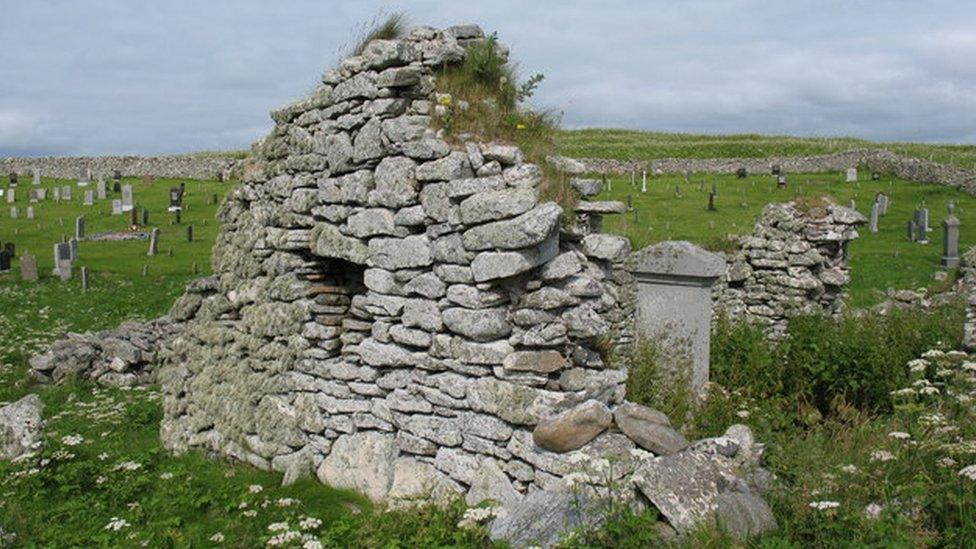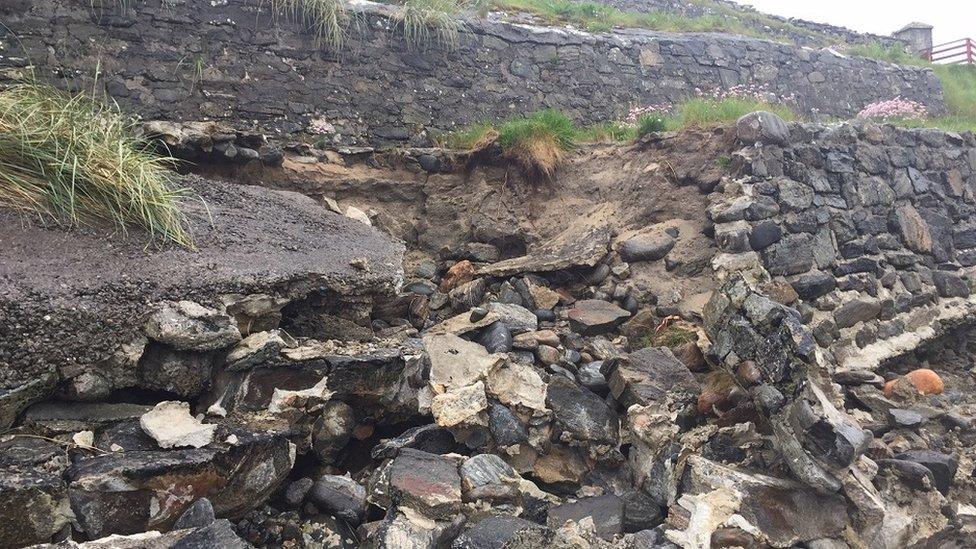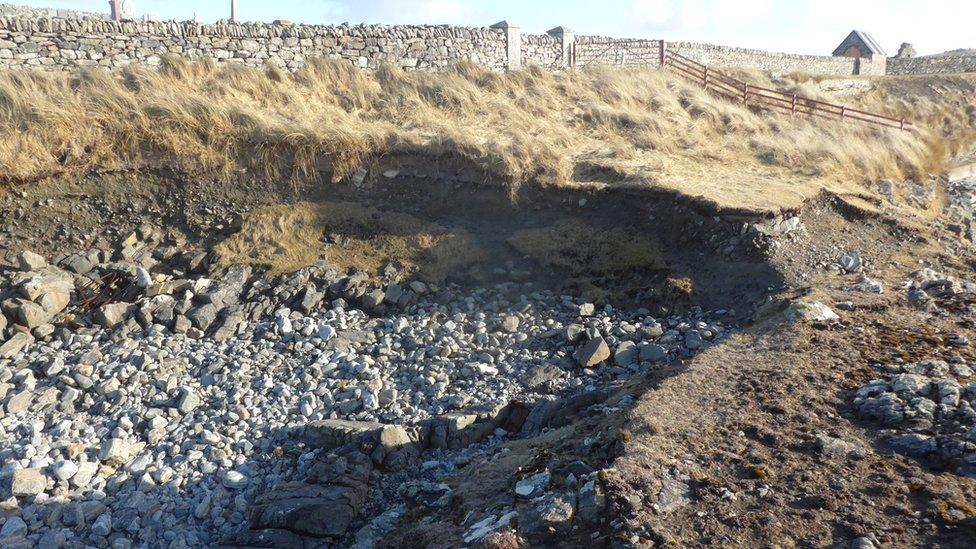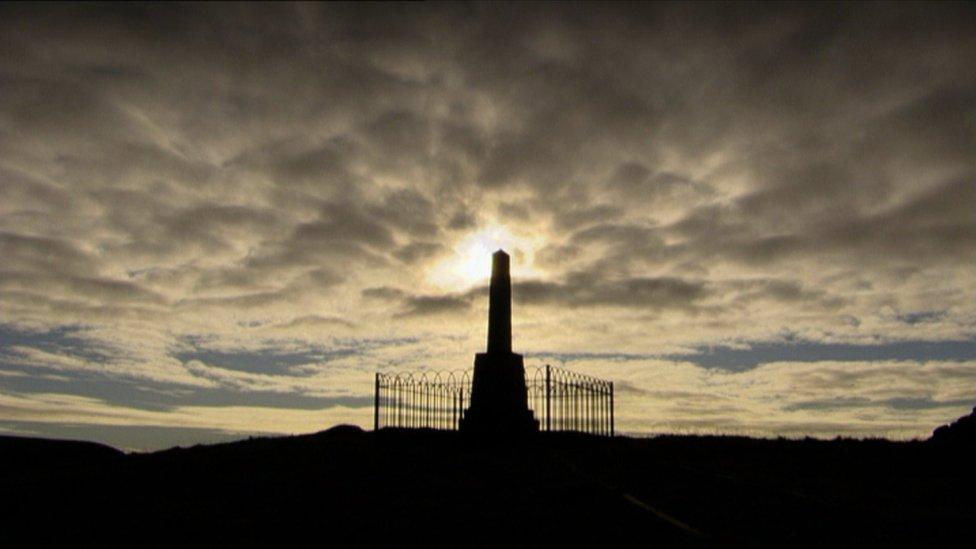Battle to save Hebridean cemetery from coastal erosion
- Published

Bragar Cemetery on the west coast of Lewis has served island families for generations
An appeal has been launched to save a historic Hebridean cemetery from being lost to coastal erosion.
The graveyard at Bragar on the west coast of Lewis has served surrounding communities since medieval times.
Men who died when a naval yacht HMY Iolaire was wrecked near Stornoway after the end of World War One were also buried at the cemetery.
A crowdfunding appeal has been set up to raise £45,000 towards the £150,000 cost of protective measures.
Rock armour - a coastal defence involving large boulders - would be installed to stop the sea from eating away at a cliff.
Another side of the coast near the cemetery is also eroding away, and would cost a further £100,000 to protect.
Landowner Barvas Estate Trust, which is working with Bragar Cemetery Committee to save the cemetery, said priority was being given to the worst affected area first.
Ivan Brown, business development manager at the trust, said coastal erosion had become a serious problem in recent years.
He added that a single storm last year caused significant damage and increased the planned engineering costs.

Protecting the worst affected area will cost £150,000


The cemetery serves the communities of North Shawbost, South Bragar, North Bragar and Arnol.
There are also graves of servicemen killed during the first and second world wars.
The Iolaire was carrying home hundreds of sailors after the end of World War One.
The vessel was wrecked on a reef called the Beasts of Holm near Stornoway, on Lewis, on 1 January 1919 and more than 200 men died.

A second eroded area would cost an estimated £100,000 to protect
Related topics
- Published1 January 2019
